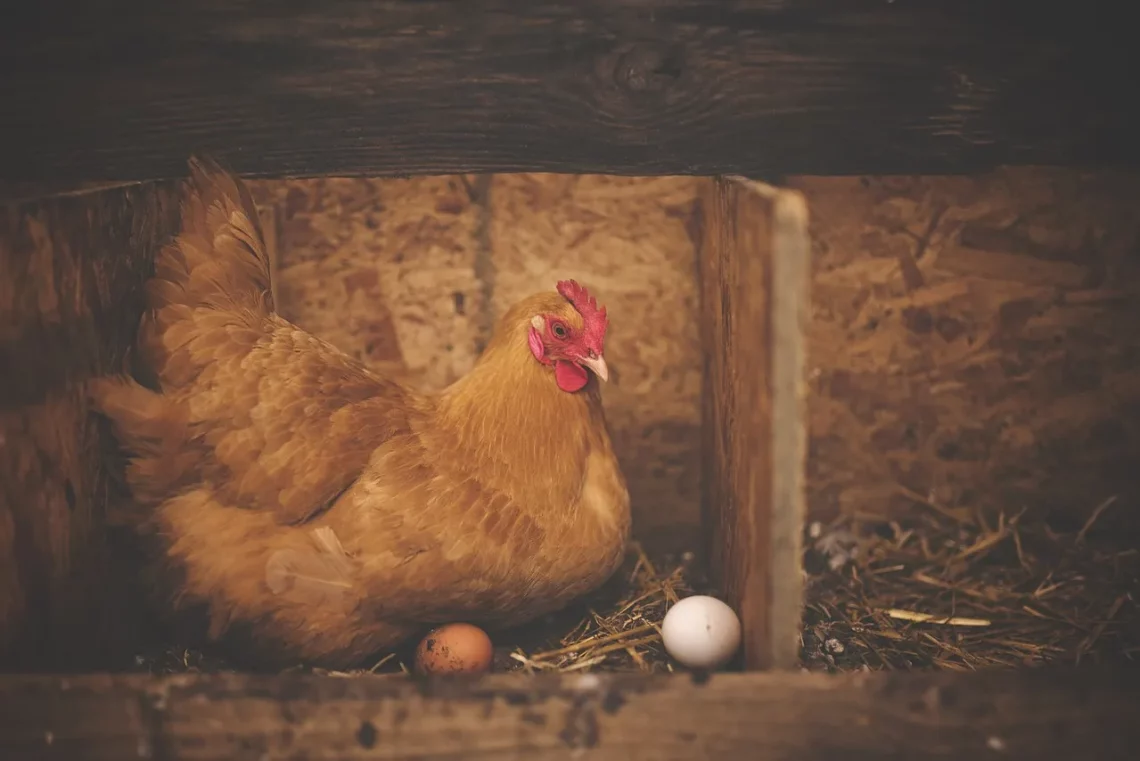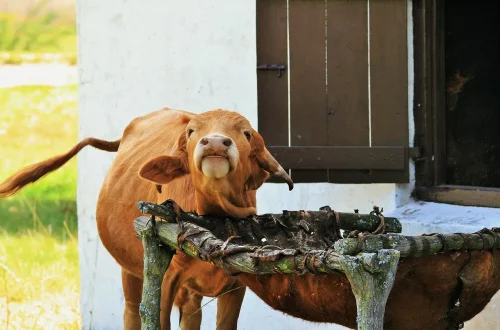
How Long Can Chickens Survive Without Food?
Chickens are remarkable creatures, known for their resilience and adaptability in various environments. As common farm animals, they provide not just companionship but also a significant source of eggs and meat. However, like all living beings, they have specific needs, particularly when it comes to nutrition. The question of how long chickens can survive without food is not just about survival; it delves into their biology and the impact of starvation on their health and productivity.
Chickens, as omnivores, require a balanced diet consisting of grains, proteins, and greens to thrive. Their digestive systems are designed to process a variety of food types, which is why they can often be seen pecking at seeds, insects, and even scraps from human meals. However, when food is scarce or unavailable, their bodies begin to adapt to the lack of nutrition. Understanding the limits of their endurance without food can help poultry owners maintain the health and well-being of their flocks.
In the following sections, we will explore the factors influencing a chicken’s ability to survive without food, the signs of hunger, and what happens to their bodies during periods of starvation. By gaining insight into these areas, chicken keepers can better care for their birds and ensure they remain healthy and productive.
Factors Affecting Starvation Tolerance in Chickens
The ability of chickens to survive without food is influenced by several factors, including age, health, and environmental conditions. Young chicks, for instance, have a limited reserve of energy and nutrients compared to adult chickens. Their bodies are still developing, and they require constant nourishment to support their growth. In contrast, mature chickens possess greater energy reserves in the form of fat, allowing them to withstand longer periods without food.
Health is another critical factor. Chickens suffering from diseases or underlying health issues may have diminished reserves and a weakened immune system, making them more susceptible to the negative effects of starvation. A healthy chicken can typically survive for a longer time without food, up to two weeks in some cases, as it can rely on its fat stores and muscle tissue for energy.
Environmental conditions also play a role. Chickens kept in colder climates may use more energy to maintain their body temperature, which can lead to quicker depletion of energy reserves. Conversely, those in warmer environments might survive slightly longer due to lower energy expenditure. Access to water is equally crucial; without adequate hydration, a chicken’s survival duration without food decreases significantly. Typically, chickens can only survive for a few days without water, which further complicates their ability to endure food deprivation.
In summary, while a well-nourished chicken can endure starvation for a limited time, numerous factors such as age, health, and environmental conditions greatly influence their overall survival. Understanding these elements is vital for any poultry owner aiming to maintain a healthy flock.
Signs of Hunger in Chickens
Recognizing the signs of hunger in chickens is essential for ensuring their well-being. Chickens are generally social and active animals, and any changes in their behavior can indicate dietary issues. One of the first signs of hunger is increased vocalization. Chickens may become more vocal, clucking and squawking to express their dissatisfaction with the lack of food.
Another noticeable behavior is foraging. When hungry, chickens will often search more aggressively for food, pecking at the ground, scratching, and showing interest in anything that resembles food. In a flock, this behavior can escalate, leading to competition among birds as they vie for whatever food is available.
Physical changes can also signal hunger. Chickens may exhibit weight loss as their bodies begin to draw upon fat and muscle reserves. A noticeable decrease in energy levels is common; hungry chickens may become lethargic and less inclined to engage in normal activities such as dust bathing or exploring their environment.
Feather condition is another indicator of a chicken’s nutritional status. Chickens that are not receiving adequate nutrition may develop dull, ragged feathers, and their overall appearance may suffer. Additionally, the production of eggs can be affected. Hens may stop laying eggs altogether or produce eggs with poor shell quality when their nutritional needs are not met.
It is essential for chicken owners to monitor their flock closely for these signs of hunger. Regular feeding schedules, along with appropriate portions of a balanced diet, can help prevent hunger and its negative effects on health and productivity. Being attentive to these behaviors ensures that the chickens remain healthy and can thrive in their environment.
Impact of Food Deprivation on Chicken Health
When chickens experience food deprivation, their bodies begin to undergo significant changes as they attempt to adapt to the lack of nutrition. Initially, chickens will start utilizing their stored fat as an energy source. This process is relatively efficient, allowing them to survive for several days. However, as the days progress without food, the health of the chicken begins to decline.
One of the first impacts of prolonged starvation is a weakened immune system. Without the necessary nutrients, chickens become more susceptible to diseases and infections. Their bodies struggle to produce the antibodies needed to fight off pathogens, which can lead to illness and increased mortality rates within the flock.
Prolonged food deprivation also affects muscle mass and overall strength. As the chicken’s body resorts to breaking down muscle tissue for energy, it can lead to significant weight loss and weakness. This decline in physical condition can result in difficulty moving, which further exacerbates the problem as the chicken may not be able to forage for food effectively.
Reproductive health is another area significantly impacted by food deprivation. Hens may cease egg production altogether, and if they are able to lay eggs, the eggs may be smaller and of lower quality. This decline in reproductive capability can have long-term effects on the flock’s productivity and viability.
Additionally, psychological effects can manifest in chickens that are deprived of food. Stress and anxiety levels can increase, leading to abnormal behaviors, including aggression within the flock. Understanding these health impacts is essential for poultry owners to take proactive steps to ensure their chickens receive proper nutrition and care.
Best Practices for Ensuring Chicken Nutrition
To prevent starvation and ensure that chickens remain healthy and productive, poultry owners should implement best practices for nutrition management. A well-balanced diet is critical, consisting of high-quality feed that meets the specific needs of the chickens, including proteins, carbohydrates, vitamins, and minerals.
Regular feeding schedules are essential. Chickens thrive on routine, so providing food at the same times each day can help ensure they receive adequate nutrition. It’s important to monitor the feeding amounts and adjust them according to the number of chickens and their specific dietary needs. Free-feeding, where food is available at all times, can also be an effective strategy, provided that the feed is of high quality and not prone to spoilage.
Access to clean, fresh water is equally important. Chickens need water to digest food and maintain overall health. During hot weather, it’s vital to ensure that the water supply remains cool and plentiful. Regular checks should be made to ensure that the water containers are clean and filled, as dehydration can lead to severe health issues.
In addition to commercial feed, offering supplementary foods can enhance diet diversity. Chickens enjoy fruits, vegetables, and grains, which can provide additional nutrients and stimulate natural foraging behaviors. However, care must be taken to avoid toxic foods, such as onions, chocolate, and avocados.
Lastly, monitoring the flock’s health regularly is crucial. Observing for signs of hunger, weight loss, or behavioral changes can help catch potential issues early. If any health concerns arise, consulting with a veterinarian experienced in poultry is recommended to address any dietary deficiencies or health problems.
In conclusion, ensuring that chickens receive proper nutrition is vital for their health and productivity. By following best practices for feeding and monitoring, poultry owners can help prevent starvation and promote a healthy, thriving flock.
**Disclaimer:** This article is for informational purposes only and does not constitute medical advice. For any health-related concerns regarding your chickens, please consult a veterinarian.




